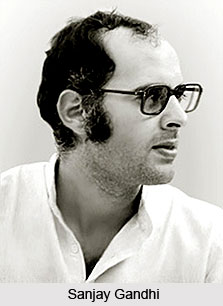 Emergency in 1975 in India was called in the early morning hours of June 26. Mrs. Indira Gandhi moved determinedly to put an end to all resistance to her continuance in office. All her principal opponents, not only in the opposition but in the CPP itself, were arrested. At her request, the President of India declared an Emergency under Article 352 of the Constitution. A twenty-point economic program was proclaimed, emphasising reforms for the poor and landless. Parliament moved promptly to pass new electoral laws superseding the laws under which Mrs. Gandhi was found accountable and her election voided. Within a few months, President`s Rule was made obligatory in the two non Congress ruled states of Gujarat and Tamil Nadu, thereby bringing the whole country under direct dictatorial rule from Delhi. Parliamentary elections scheduled for March, 1976 were postponed and the terms of both Parliament and the state legislative assemblies were extended.
Emergency in 1975 in India was called in the early morning hours of June 26. Mrs. Indira Gandhi moved determinedly to put an end to all resistance to her continuance in office. All her principal opponents, not only in the opposition but in the CPP itself, were arrested. At her request, the President of India declared an Emergency under Article 352 of the Constitution. A twenty-point economic program was proclaimed, emphasising reforms for the poor and landless. Parliament moved promptly to pass new electoral laws superseding the laws under which Mrs. Gandhi was found accountable and her election voided. Within a few months, President`s Rule was made obligatory in the two non Congress ruled states of Gujarat and Tamil Nadu, thereby bringing the whole country under direct dictatorial rule from Delhi. Parliamentary elections scheduled for March, 1976 were postponed and the terms of both Parliament and the state legislative assemblies were extended.
Mrs. Gandhi`s younger son, Sanjay Gandhi, came forward as the most important defender of the Emergency. Although Indira Gandhi primarily announced that the imposition of the Emergency was to be a temporary measure to re-establish discipline and order in the country, she on the other hand took steps to institutionalise some of its features through laws and constitutional amendments. These included enhancements in the power and prestige of the offices of Indian Prime Minister and Chief Minister, the institutionalisation of procedures for censoring the press, the imposition of restraint in the workplace and in public life and of restrictions and limits on the civil liberties of the people, the reduction of the independent powers of the courts to review acts of Parliament and the state assemblies and to protect the rights of citizens, and extension of the terms of state legislative assemblies, among other actions.
Thousands of local-level party workers were jailed and press censorship made it intricate for other than local and very limited political protests to be made overtly by regime opponents who were not in jail. There was extensive dissatisfaction at the mass level. Discontent also began to build up among Muslims as an outcome of projects for slum clearance and elimination of pavement squatters for the sake of beautification of Delhi. Slum residents and squatters were ordered to move and were provided new housing, generally miles away from the city, making it difficult for residents to find work in Delhi.
Finally, all those persons who were affected by the demands for increased discipline in the place of work, by the pressures to procure sterilisations, and by freezes on wage increases also became disaffected with the Emergency regime. Most prominent in these categories were urban workers, government employees, and teachers.
1977 Elections and Return to Normalcy
In the face of these simmering discontents, Indira Gandhi all of a sudden announced in December, 1977 a call for new parliamentary elections and a relaxation of the Emergency restrictions on the press and the opposition, including the release from jail of most political prisoners. Mrs. Gandhi and Sanjay Gandhi probably believed that the opposition would not have adequate time to mobilise and assemble the necessary resources to fight a successful election campaign in the few weeks available to them. The Janata party achieved a great victory, winning 295 seats, a bare majority in the Lok Sabha, but the opposition as a whole secured more than two-thirds of the seats, reducing the Indian National Congress to 153 seats, only 28 percent of the seats in the House.
The Janata government that came to power with Morarji Desai as the Prime Minister had promised to reinstate normalcy if it succeeded at the polls and it set out to do so right away after taking office. Civil liberties of the people were completely restored, press censorship was eliminated and the independence of the press from government intervention re-established, and all remaining political prisoners were released. The Janata government restored the main features of parliamentary democracy in India and made the future imposition of an emergency some what more difficult.






